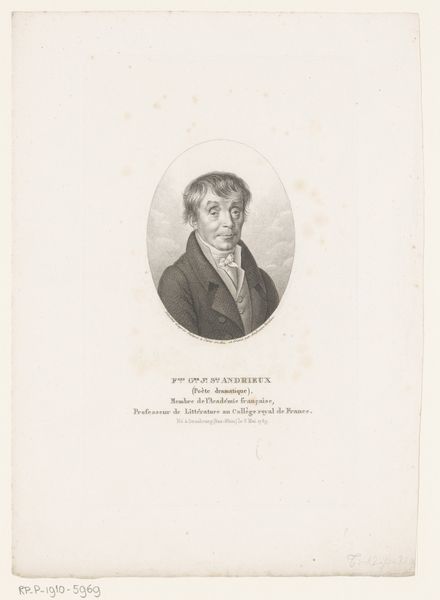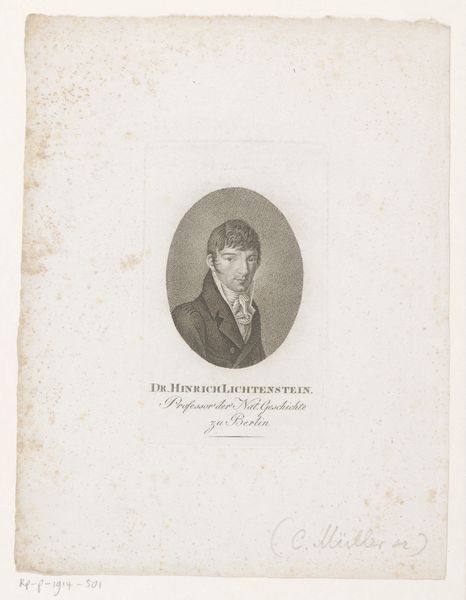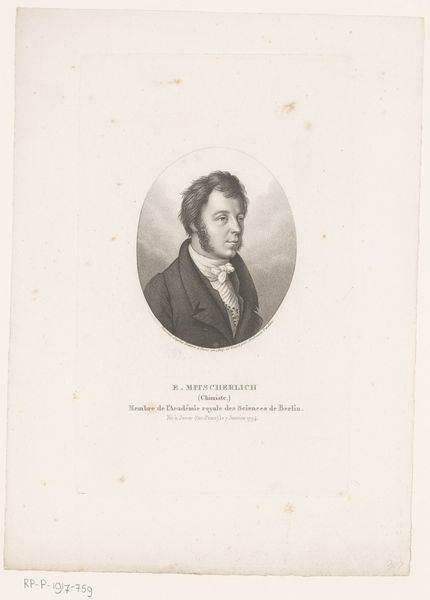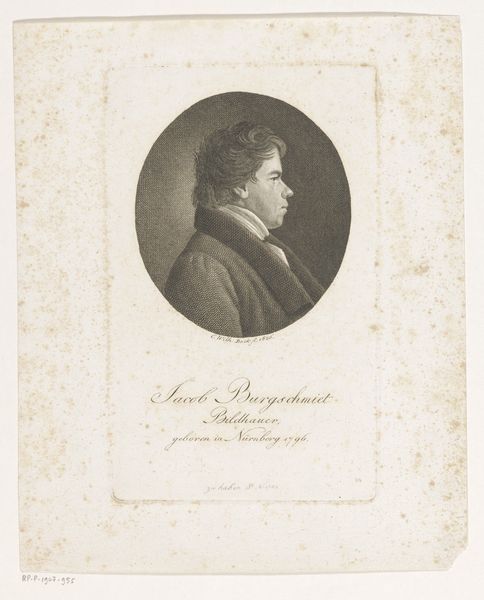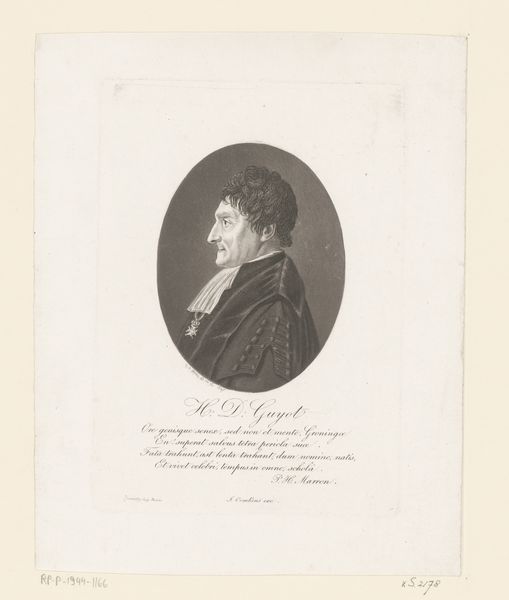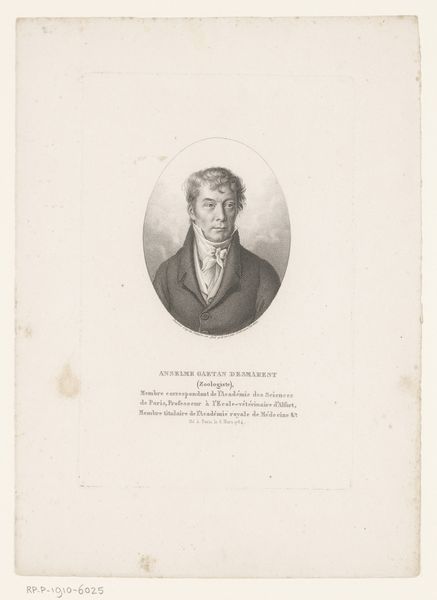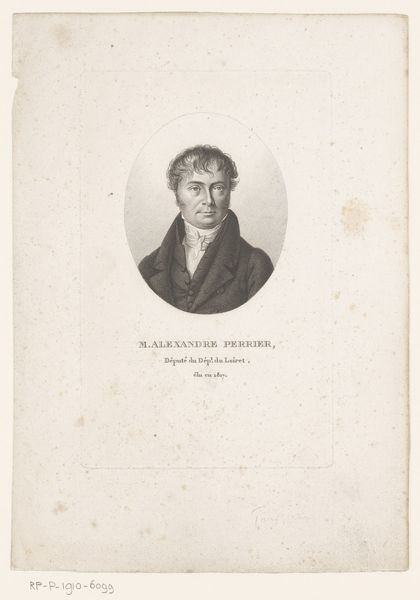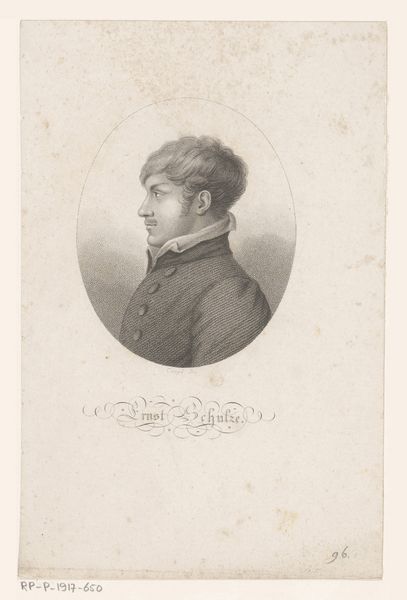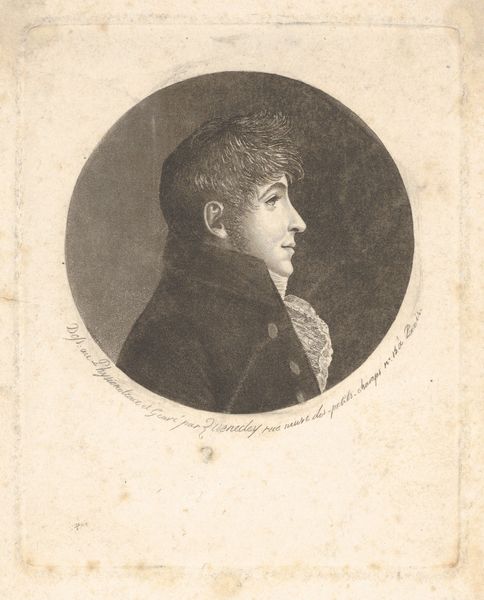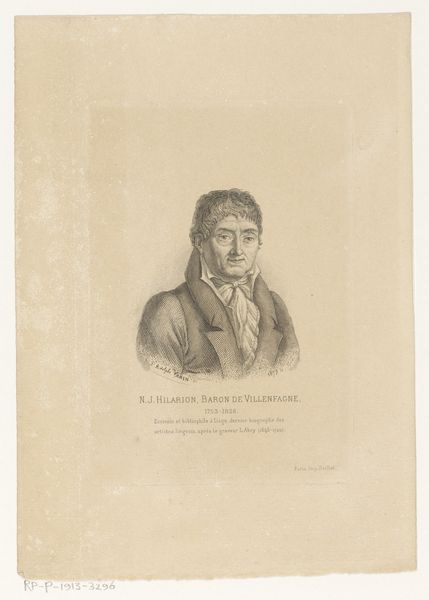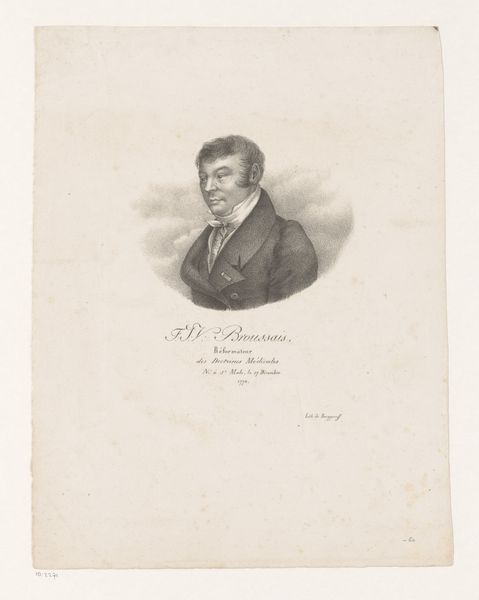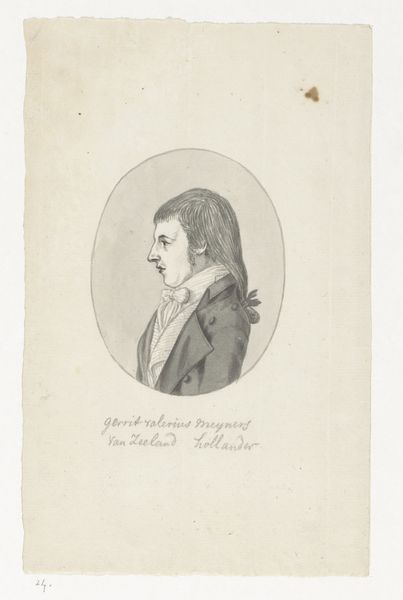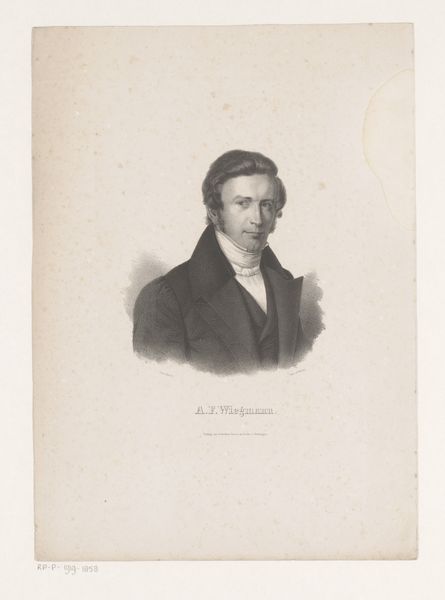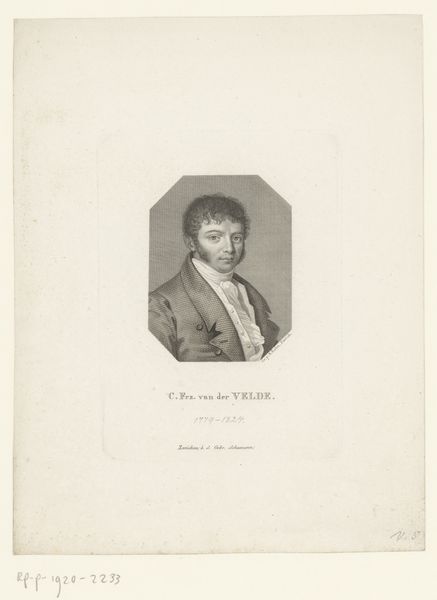
print, engraving
#
portrait
#
neoclacissism
# print
#
engraving
Dimensions: height 207 mm, width 135 mm
Copyright: Rijks Museum: Open Domain
This stipple engraving of Martin Hinrich Lichtenstein was made by Franz Joseph Leopold, using a copper plate to create the image on paper. Look closely, and you can see that the image is composed of thousands of tiny dots, created by repeatedly tapping a tool into the surface of the plate. Leopold would have painstakingly built up the image, dot by dot, varying the density and depth of the marks to create the tonal range and textures we see. This was a labor-intensive, highly skilled process, demanding precision and patience. In its time, stipple engraving was a popular method for reproducing portraits and other images, making them more widely accessible. The technique allowed for softer, more nuanced effects than traditional line engraving. Here, the materiality of the print, with its delicate texture and subtle gradations of tone, contributes to the intimate and refined character of the portrait. Considering the amount of work involved, we get a sense of the value placed on Lichtenstein's likeness, and the cultural significance of portraiture during this period.
Comments
No comments
Be the first to comment and join the conversation on the ultimate creative platform.
